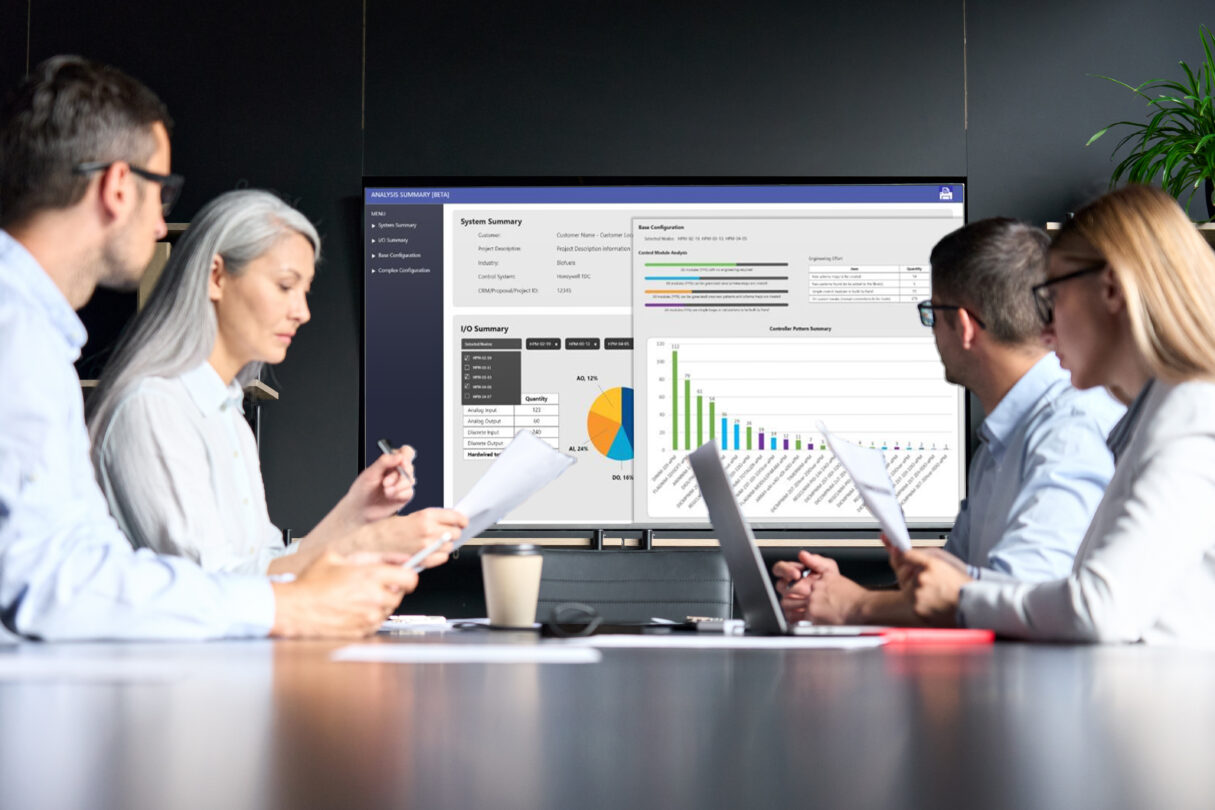Modernization projects are something of a catch-22. As more plants reach two, three, or even four decades of operation, they need to update their automation to increase efficiency and drive the most value out of every second of operation. That efficiency directly translates into financial gains.
However, modernization projects are often seen as expensive, time consuming, and complicated. We all know there are situations where a plant needs to spend money to make money, but saying that and actually doing it are two very different things.
Fortunately, when teams leverage the right technologies, today’s modernization projects are not nearly as complex, time consuming, or expensive as traditional update strategies. As Aaron Crews shares in his recent article in Efficient Plant, today’s modern digital tools leverage artificial intelligence (AI) to reduce the time spent engineering and eliminate the errors of manual automation conversion.

Emerson’s DeltaV REVAMP uses AI to help take the expense and guesswork out of modernization projects.
Knowing is half the battle
In a traditional modernization, engineering teams typically use custom conversion tools to read existing control system configuration, to migrate their automation to a new control technology. This strategy creates a number of headaches. First, the team must have someone experienced enough to create that custom tool. Then, they need the time and expertise to collect and transfer their legacy control configuration into the tool. But even when they complete those tasks, there is still risk of error during conversion, either due to manual errors or miscalculations.
Few teams want to spend time performing a conversion that might just end with broken controls. In many cases, the risk is too high, so they stick with their current technology, missing out on the new features available in cutting-edge control systems.
Fortunately, today there is no need to blindly leap into conversion, hoping mistakes or mismatched logic won’t break processes. Today’s forward-thinking teams are turning to modernization software with built-in AI to help them plan and perform their modernizations.
A comprehensive plan in minutes
Software tools like Emerson’s DeltaV™ REVAMP take all the guesswork out of transitioning to modern control. Instead of creating custom conversion tools, the project team simply adds the legacy control system’s configuration files into the software. The built-in AI parses the files and compares all logic against a massive database of thousands of successful control system installations. When it recognizes code, it automatically converts that code to fit best-practice configuration in the new control system. Any code that it doesn’t recognize is automatically documented and added to comprehensive project reports to show how much code conversion can be automated versus how much must be built by hand or reengineered.
DeltaV REVAMP can complete this process in minutes, even as its engineering library of successful projects continues to grow. Teams get an accurate I/O list, complexity assessment, function block database, logic drawings, structured text, ladder logic diagrams, and detailed configuration reports—automatically.
Knowing what you don’t know
There is no longer any need to put off modernization—either because the team worries it will be too expensive or because they don’t have the expertise to ensure a successful project. Armed with comprehensive reports, teams using AI-based modernization software won’t have to go into their projects blind. From the very beginning they can see exactly what needs to be done, making it easier to break the project into phases that will work best for their organizational goals, while simultaneously eliminating errors. And, in the best solutions, the process only takes minutes, turning a catch-22 into a win/win.

